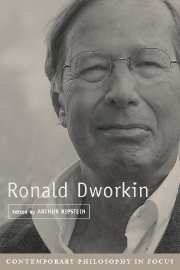46 results
Commodity Fetishism*
-
- Journal:
- Canadian Journal of Philosophy / Volume 17 / Issue 4 / December 1987
- Published online by Cambridge University Press:
- 01 January 2020, pp. 733-748
-
- Article
- Export citation
Critical Notice
-
- Journal:
- Canadian Journal of Philosophy / Volume 40 / Issue 4 / December 2010
- Published online by Cambridge University Press:
- 01 January 2020, pp. 669-699
-
- Article
- Export citation
Political Independence, Territorial Integrity and Private Law Analogies
-
- Journal:
- Kantian Review / Volume 24 / Issue 4 / December 2019
- Published online by Cambridge University Press:
- 26 November 2019, pp. 573-604
- Print publication:
- December 2019
-
- Article
- Export citation
Self-certification and the Moral Aims of the Law
-
- Journal:
- Canadian Journal of Law & Jurisprudence / Volume 25 / Issue 1 / January 2012
- Published online by Cambridge University Press:
- 20 July 2015, pp. 201-217
- Print publication:
- January 2012
-
- Article
- Export citation
Recognition and Cultural Membership*
-
- Journal:
- Dialogue: Canadian Philosophical Review / Revue canadienne de philosophie / Volume 34 / Issue 2 / Spring 1995
- Published online by Cambridge University Press:
- 13 April 2010, pp. 331-342
-
- Article
- Export citation
The Ideal Libertarian*
-
- Journal:
- Dialogue: Canadian Philosophical Review / Revue canadienne de philosophie / Volume 29 / Issue 2 / Spring 1990
- Published online by Cambridge University Press:
- 13 April 2010, pp. 285-298
-
- Article
- Export citation
What Can Philosophy Teach Us About Multiculturalism?*
-
- Journal:
- Dialogue: Canadian Philosophical Review / Revue canadienne de philosophie / Volume 36 / Issue 3 / Summer 1997
- Published online by Cambridge University Press:
- 13 April 2010, pp. 607-614
-
- Article
- Export citation
For Love of Country: Debating the Limits of PatriotismMartha Nussbaum and respondents Boston: Beacon Press, 1996, viii + 154 pp., $15.00 paper
-
- Journal:
- Dialogue: Canadian Philosophical Review / Revue canadienne de philosophie / Volume 37 / Issue 4 / Fall 1998
- Published online by Cambridge University Press:
- 13 April 2010, pp. 851-853
-
- Article
- Export citation
Making the World Safe for Liberalism*
-
- Journal:
- Dialogue: Canadian Philosophical Review / Revue canadienne de philosophie / Volume 32 / Issue 2 / Spring 1993
- Published online by Cambridge University Press:
- 13 April 2010, pp. 309-314
-
- Article
- Export citation
Gauthier's Liberal Individual*
-
- Journal:
- Dialogue: Canadian Philosophical Review / Revue canadienne de philosophie / Volume 28 / Issue 1 / Winter 1989
- Published online by Cambridge University Press:
- 13 April 2010, pp. 63-76
-
- Article
- Export citation
Morality Within the Limits of ReasonRussell Hardin Chicago: University of Chicago Press, 1988, pp. xx, 234
-
- Journal:
- Canadian Journal of Political Science/Revue canadienne de science politique / Volume 22 / Issue 3 / September 1989
- Published online by Cambridge University Press:
- 10 November 2009, pp. 685-686
-
- Article
- Export citation
3 - Liberty and Equality
-
-
- Book:
- Ronald Dworkin
- Published online:
- 05 June 2012
- Print publication:
- 28 May 2007, pp 82-108
-
- Chapter
- Export citation

Ronald Dworkin
-
- Published online:
- 05 June 2012
- Print publication:
- 28 May 2007
Contributors
-
- Book:
- Ronald Dworkin
- Published online:
- 05 June 2012
- Print publication:
- 28 May 2007, pp ix-x
-
- Chapter
- Export citation
Index
-
- Book:
- Ronald Dworkin
- Published online:
- 05 June 2012
- Print publication:
- 28 May 2007, pp 177-186
-
- Chapter
- Export citation
Bibliography
-
- Book:
- Ronald Dworkin
- Published online:
- 05 June 2012
- Print publication:
- 28 May 2007, pp 169-176
-
- Chapter
- Export citation
Frontmatter
-
- Book:
- Ronald Dworkin
- Published online:
- 05 June 2012
- Print publication:
- 28 May 2007, pp i-vi
-
- Chapter
- Export citation
Introduction: Anti-Archimedeanism
-
-
- Book:
- Ronald Dworkin
- Published online:
- 05 June 2012
- Print publication:
- 28 May 2007, pp 1-21
-
- Chapter
- Export citation
Contents
-
- Book:
- Ronald Dworkin
- Published online:
- 05 June 2012
- Print publication:
- 28 May 2007, pp vii-viii
-
- Chapter
- Export citation
Justice and Responsibility
-
- Journal:
- Canadian Journal of Law & Jurisprudence / Volume 17 / Issue 2 / July 2004
- Published online by Cambridge University Press:
- 20 July 2015, pp. 361-386
- Print publication:
- July 2004
-
- Article
- Export citation



